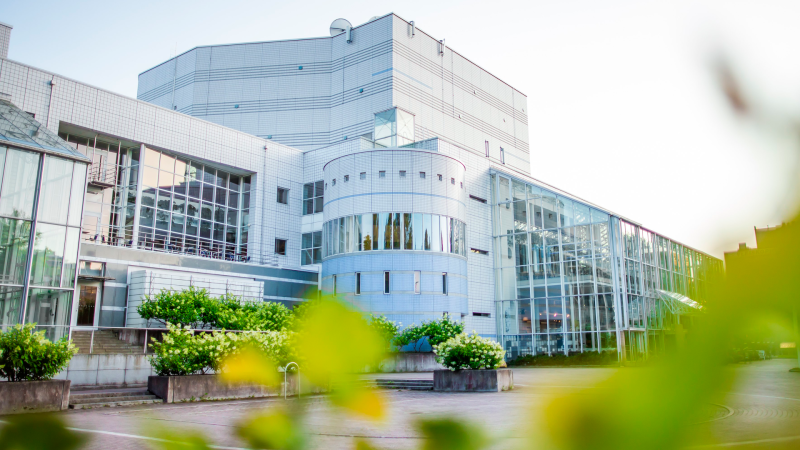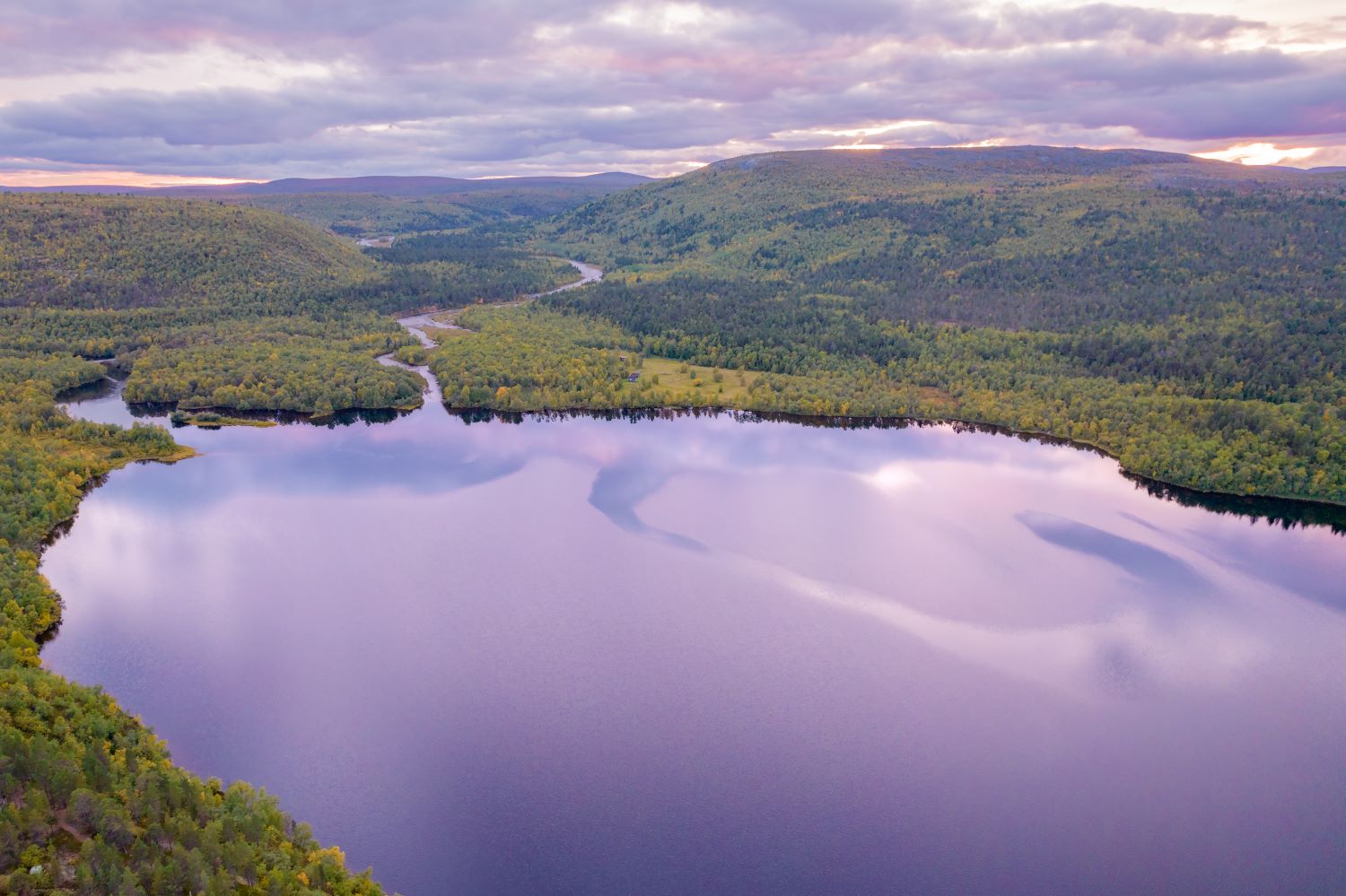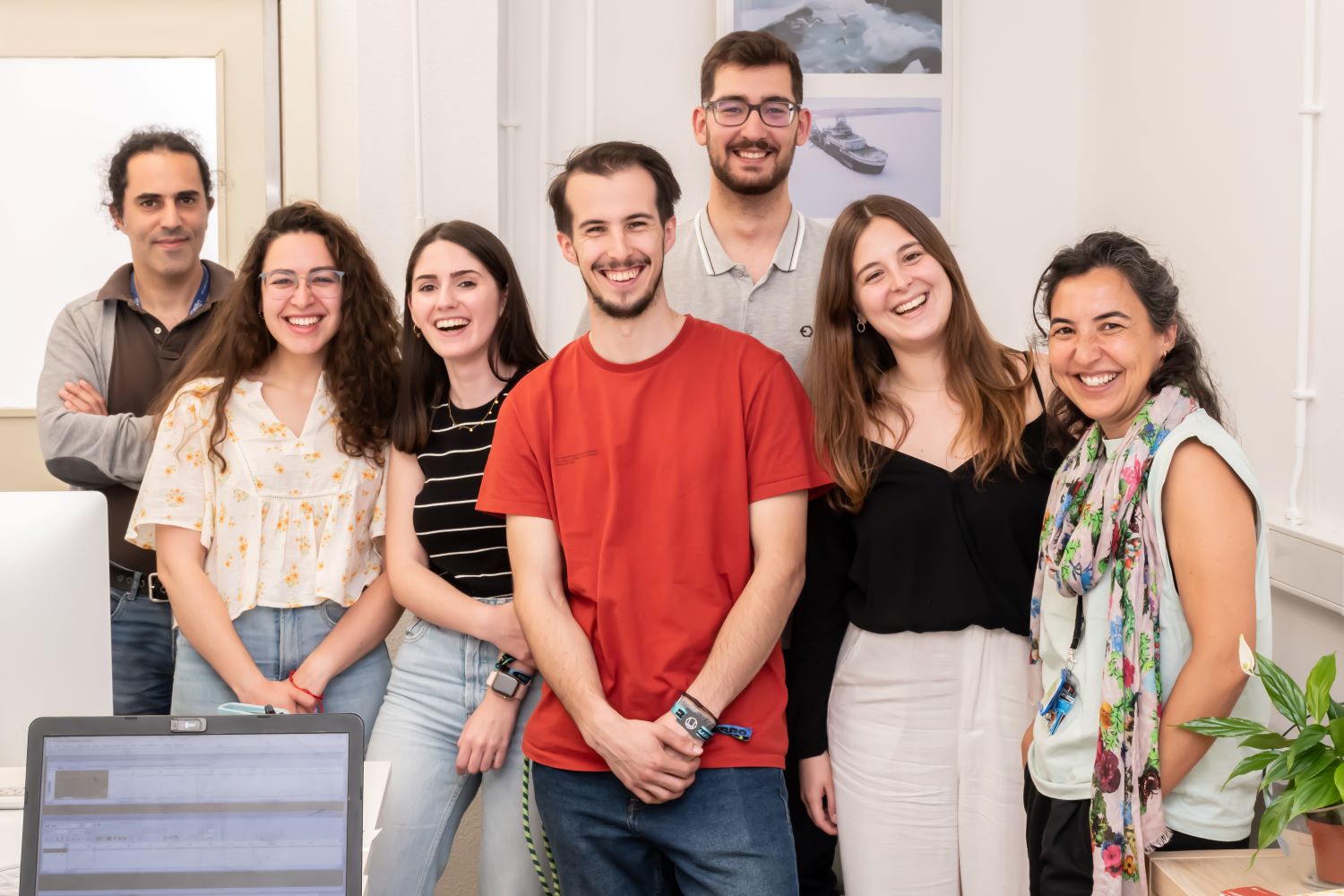Prof. Jaana Bäck: The eLTER community is a Key Actor in Environmental Science
Jaana Bäck works at the University of Helsinki, Finland, as professor in Forest Sciences. Her research group studies how forests affect climate, and how humanity could possibly mitigate climate change by managing the production forests in a clever way, simultaneously improving the biodiversity in forest ecosystems. Prof. Bäck has been connected to eLTER for more than a decade in several projects. Currently she is the National coordinator of the Finnish LTER network and leading the EU funded eLTER PLUS project, which aims at supporting the development of tools for addressing the global Grand Challenges and building a strong community that is engaged in eLTER. In the past months, Jaana Bäck has also been actively involved in the organisation of the first eLTER Science Conference, scheduled to take place on 23-27 June 2025 in Tampere, Finland. She believes that the conference will mark a turning point in how we approach sustainability and environmental challenges on a global scale.
We would like to thank Jaana Bäck for this amazing interview, full of insight and meaning for the eLTER community and beyond. Enjoy!
How did the idea to organise an eLTER science conference come about?
By the time we were planning the eLTER PLUS project, it was already clear that towards the end of the 5-year period we want to organize a unique science conference, addressing the holistic ecosystem science which is fundamentally motivating the eLTER development, and also use the Conference to promote the benefits from eLTER Research infrastructure to not only the ones who have been involved in its development, but also to the broader scientific communities. The idea also emerged from the need to bring together a diverse community of researchers, policymakers, and practitioners working in the fields of ecosystem research, environmental observations, and sustainability.
Over the past few decades, the need for long-term ecological and socio-ecological research has become more apparent, as environmental changes—including climate change, biodiversity loss, and sustainability challenges —are increasingly complex and have lasting impacts. As eLTER integrates multiple scientific disciplines, ranging from ecology and environmental science to social sciences and data sciences, bringing together researchers and experts from these diverse fields promotes cross-disciplinary collaboration, which is vital for addressing complex environmental challenges. The conference will serve as a meeting point for exchanging knowledge, tools, and ideas that can drive innovative solutions.
A central goal of any international conference is to strengthen professional networks and partnerships. For the eLTER community, this is an opportunity to consolidate its role as a key actor in environmental science, building relationships with other international research infrastructures and organizations. It also allows for the creation of new collaborations, whether for future research projects, funding opportunities, innovation and technology development, or joint initiatives.
 The eLTER Science Conference 2025 venue in Tampere, Finland
The eLTER Science Conference 2025 venue in Tampere, Finland
When you began discussing this idea with your colleagues, what was the concept that you all thought would make the conference unique/stand out among other similar events?
Many environmental conferences focus on ecology or social science independently, but the eLTER Conference stands out by its commitment to transdisciplinary studies on socio-ecological systems—the intersection of ecosystems and human systems. This approach emphasizes how human activities influence ecosystems and vice versa, fostering a more holistic view of environmental sustainability. We are inviting researchers beyond the disciplinary boundaries, working in ecology, climate sciences, critical zone research and socio-ecology to come together in a setting that allows them to meet, have a constructive dialogue and create together a comprehensive understanding of the way research can address the global grand challenges of climate and biodiversity crises, unsustainable resource use and many other questions critical at the Anthropocene.
Further, following the eLTER ethical guidelines we are organizing the conference in an environment-friendly framework. This means that, for example, the venue is Finland's first carbon-neutral congress center, food is locally produced and vegan or vegetarian, and we will compensate for the climate impact of the Conference by using a carbon neutrality program that plants trees in an abandoned peat extraction area in Finland. We are thus paving the way for a more sustainable way of organizing large scientific events, which are highly needed after the long pandemic years when people did not have the opportunity to meet face-to-face.
And third, the field excursions offer the conference attendees an opportunity to see the first-class science but also enjoy the beauty of the northern nature in its best blossom, at the end of June with light nights and refreshing lakeland scenery.
How would you present in a couple of sentences the scientific sessions you have at the eLTER conference?
Oh, this is difficult since we have such a wide breath of sessions and topics. The sessions will span from Unraveling the mysterious role of groundwater in ecosystem dynamics to Ecosystem restoration, and from Novel technologies in environmental monitoring to Integrated observations in the atmosphere-biosphere continuum. Policy-relevant topics include e.g. Carbon farming and Studying the sustainability of globally embedded socio-ecological systems. The topics reflect our ambition for the inter-and transdisciplinary approach, and for crossing boundaries and building a common understanding on a range of environmental challenges. All sessions are convened by at least two researchers representing the different disciplines, and the list of conveners is also quite balanced career step and gender wise and geographically. The conveners have invited a prominent keynote to inspire the attendees and present the latest research on the topics.
 Jaana Bäck, Tuukka Petäjä, and Steffen Noe will be the conveners for session "Integrated observations in the atmosphere-biosphere continuum"
Jaana Bäck, Tuukka Petäjä, and Steffen Noe will be the conveners for session "Integrated observations in the atmosphere-biosphere continuum"
You have offered a combined experience of scientific sessions, workshops and field trips to some of the eLTER sites in Finland. How important is it for such an event to have an interesting social programme as well?
Yes, indeed. Our Social program is designed to enable informal communications and give the participants a broader perspective of the kind of science eLTER supports.
The Conference will feature a number of interactive workshops on data, arts, co-design of services etc. etc. These are organized by conference participants and open for all registered people. We are also arranging a photo and video exhibition ‘eLTERinSites’, treasuring the concrete work done at eLTER Sites and eLTSER Platforms. The field trips offer possibilities for networking and seeing from what two of the Finnish eLTER Sites look like. And we do also offer the Conference Dinner in a unique setting on an island in one of the largest lakes in Finland, Lake Pyhäjärvi.
When you say the conference will be high-level, what does this mean?
The Conference will feature several prominent Keynotes who will present inspiring talks that bring in the state-of-the art research in their respective research fields. Among them are internationally recognized researchers such as Prof. Josep Penuelas from CREAF, Spain; Prof. Nina Buchmann from ETH, Switzerland and Prof. Markku Kulmala from Helsinki, Finland. All sessions will also have several volunteer oral and poster presentations by participants. We are convinced that this structure will create scientific content that is unsurpassed and motivates researchers to attend the Conference to present their own results.
What is the biggest incentive for researchers to participate in the first eLTER conference?
Among the incentives is the unique opportunity to connect with a diverse network of experts from various regions, research institutions, and disciplines. Exposure to cutting-edge science and data will create inspiration and collaborations for future funding opportunities, research grants, and projects.
Attending a high-level, inaugural conference like eLTER can inspire researchers, renew their passion for their work, and spark new ideas by exposing them to a variety of perspectives, methodologies, and challenges being addressed in the field.
I would say that you do not like to miss the opportunity to be in the first eLTER Science Conference! The ambience, highly interesting scientific content and the inspired community meeting in Tampere will make this a unique, memorable event.
We invite abstracts for both short orals and poster presentations in all sessions introduced on our website. Abstract Submission and Registration are now open!
After the eLTER Science Conference 2025 Proceedings (abstract collection) are published, the ACA system (ARPHA Conference Abstracts) disseminates, indexes and archives all abstracts. Each abstract is registered at Crossref and assigned with its own DOI. This is one of the unique features of our Conference.
 A group of smiling researchers, photographed for the #eLTERinSites photo collection at LTSER Ria de Aveiro - Portugal.
A group of smiling researchers, photographed for the #eLTERinSites photo collection at LTSER Ria de Aveiro - Portugal.
You have a special approach towards early-career researchers. Tell us about it and why is it important for you to have young scientists at the conference?
The future of our planet is in the youth! Of course, science builds concretely on previous achievements, but its much-needed renewal requires brilliant new ideas and the new generation of scientists. Young scientists bring new ideas, methodologies, and fresh perspectives that can push the boundaries of established thinking. Their enthusiasm and curiosity often drive innovation and creativity in tackling complex environmental and socio-ecological issues.
We highly value the diversity and equity among all participants and are striving at a balanced selection of early career and senior presenters in all sessions.
We recognize the financial and logistic difficulties for early career researchers to attend such meetings and are trying to make it easier and motivating to also researchers who have not yet established their place in the scientific community.
In eLTER, the team of Early Career & Friends has been active for a few years already. We will facilitate their participation in the Conference by giving them a discount in the registration fee and by offering travel grants to students and Early career researchers.
We also know that the young researchers are cautious of the environmental impacts of traveling, therefore we offer attendees an easy possibility to compensate for the climate impact of travels and have also collected advice on environmental-conscious travel opportunities.
Which are the challenges when organising a conference of such magnitude?
Organizing a conference like the eLTER Science Conference involves meticulous planning, coordination, and a multifaceted approach to addressing logistical, technical, financial, and content-related challenges. Ensuring a positive experience for participants, while meeting the scientific, policy, and sustainability goals of the event, requires a collaborative effort from a skilled organizing team, reliable partners, and strong leadership.
Since this is the first time we are organizing an eLTER Science Conference, we don’t really know how many participants to expect. This creates uncertainty, and in particular the budgetary planning is challenging. Securing funding and sponsorship is needed for covering venue rental, speaker fees, catering, technology, and other expenses. Luckily, we have an excellent venue in Tampere, and the premises allow us to be rather flexible in this respect.
Encouraging participation from researchers, particularly early-career scientists, requires a comprehensive outreach strategy, including calls for papers, sessions, workshops, and networking opportunities. Our communications team is doing great work in promoting the event in all possible channels.
Who are the leading faces of the organising committee, tell us about some of them and what do they bring to the table?
The organizing committee is jointly led by Prof. Jerome Gaillardet from CNRS in France, Dr. Michael Mirtl, UFZ in Germany and me. We have divided the tasks so that Jerome leads the Scientific Program Committee and I am responsible for the local organisation. Michael is the eLTER ESFRI process chair, and he is connecting the eLTER RI construction to the Science Conference. Organising such a big event is largely teamwork, and luckily, we have a very motivated and innovative team working with us, the central ones being Paulina Rajewicz (University of Helsinki, Finland), Nina Hobbhahn (UFZ, Germany) and Alexandra Tzvetkova (Pensoft Publishers, Bulgaria).
Imagine it’s June 29, 2025 (the conference has successfully ended, all participants have safely returned home), how would you continue the sentence: “The best thing about the eLTER Science Conference was …."?
…. The incredible sense of collaboration and inspiration that emerged from bringing together such a diverse group of scientists working towards a common goal: advancing long-term ecosystem and socio-ecological research. The discussions were not only intellectually stimulating, but they also led to concrete partnerships that will shape the future of environmental science. From the exciting presentations by Early Career researchers to the inspiring keynote addresses, it was clear that this conference marked a turning point in how we approach sustainability and environmental challenges on a global scale.
#eLTER2025SC
Subscribe to the eLTER Newsletter for updates on this and other interesting topics!